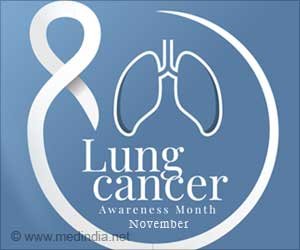Optimal Duration of Immunotherapy in Advanced Lung Cancer

According to a new retrospective cohort study published in JAMA Oncology and presented at the 2023 American Society of Clinical Oncology (ASCO) Annual Meeting (Abstract 9101) by researchers from Penn Medicine’s Abramson Cancer Centre, discontinuing
after two years is reasonable if cancer has not progressed.
The study found no statistically significant differences in overall survival between patients who discontinued medication (2✔ ✔Trusted Source
Association Between Duration of Immunotherapy and Overall Survival in Advanced Non-Small Cell Lung Cancer
Go to source
).
Advertisement
“We hope this data provides reassurance that stopping treatment at two years is a valid treatment strategy that does not seem to compromise overall survival,” said lead author Lova Sun, MD, an assistant professor of Hematology-Oncology at the Perelman School of Medicine at the University of Pennsylvania.
“In the absence of definitive prospective data about the duration of therapy – which will take years to accumulate – our goal was to use real-world observational data to provide guidance on this important clinical question.”
Finding the Right Duration of Immunotherapy forAdvanced Lung Cancer
The appropriate length of treatment remains an open question because pivotal clinical trials have used different treatment durations, and as therapies have been approved and become widely available, many patients have continued therapy beyond the one to two years tested in clinical trials.
The longer a patient continues treatment, the higher the health care costs become – both to the patient and to the health care system – and there is an ongoing risk of immune-related side effects.
In this study, the researchers analyzed de-identified data from a national electronic health record that included patients with advanced NSCLC who were treated in both academic and community settings.
Of the 1,091 patients who received an immune checkpoint inhibitor as part of their initial therapy (either alone or in combination with chemotherapy) and whose cancer had not continued to grow, only one in five stopped immunotherapy at two years and were considered the “fixed duration” group for this analysis. The vast majority who continued treatment beyond two years were considered the “indefinite duration” group.
The team analyzed the data and found similar overall survival probabilities between the two groups: 79% for a fixed duration and 81% for an indefinite duration.
“Ultimately, the field is still on the leading edge of determining the most appropriate duration for these immunotherapies that have been so effective for patients with advanced lung cancer,” said senior author Charu Aggarwal, MD, MPH, the Leslye M. Heisler Associate Professor for Lung Cancer Excellence in Hematology-Oncology at Penn.
“This study provides important data that we hope will help patients feel less worried about potential risks of coming off therapy and more confident if they decide to discontinue treatment after two years.”
Referenes:
- Immunotherapy in Lung Cancer: Current Landscape and Future Directions – (https://pubmed.ncbi.nlm.nih.gov/35222404/)
- Association Between Duration of Immunotherapy and Overall Survival in Advanced Non-Small Cell Lung Cancer – (https://pubmed.ncbi.nlm.nih.gov/37270700/)
Source: Eurekalert
Source link
#Optimal #Duration #Immunotherapy #Advanced #Lung #Cancer



